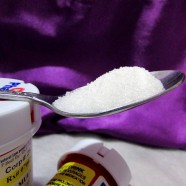
We could go as far as to say that “sugar is evil”. If there is such a thing as dark energy in food, commercially made sugar and like products top the list! It’s hard to argue with these descriptions when we now know that sugar is the number one preferred food of cancer. And we have known for decades how sugar is directly related to Diabetes. But it is also a main contributor to heart disease and inflammation and related conditions like Crohn’s disease and depression and more.
A reason why sugar is so impactful on heart disease is that it is almost always surrounded by bad fats and white flour products. These are the building blocks of arteriosclerosis when coupled with the missing all important omega 3 fatty acids, especially those that are marine sourced. Why sugar is also related to inflammatory gut diseases is it feeds the millions of microbes that degenerate intestinal tissue lining like yeast, fungus and bacterial strains left behind from antibiotics.
Bottom line is sugar is as addicting as cocaine and sugar feeds pathogens and significantly lowers our immune system for hours after eating it. Unfortunately, because it registers in the addictive center of our brain, the more we eat, the more we want. Defiantly a love – hate relationship!
It wasn’t always like this. Up until wide spread commercial sugar and fruit syrup became a main ingredient in the North American diet, sugar was sourced from natural products like honey, maple syrup and sugar cane extracts like molasses.
Sugar Consumption Stats
How far have we come? In our past history, in the era of 1700, the average person consumed approximately 4 pound of sugar per year. Today the average person consumes about 100 pounds of sugar per year. (1)
Sugar Consumption Related to Diabetes
In our more recent history in 1890, about 3 percent of the population had diabetes. A stat that is constantly growing, in 2015, over 30 million Americans had diabetes which equates to 10 percent of the population, while another 84 million were pre-diabetic. This connection cannot be ignored. (2,3,4.5,6,7)
Sugar Connection to Mainstream Diseases
Common symptoms include: weight gain/obesity (14,15), high triglyceride levels, fatty liver disease, cancer growth, lower HDL cholesterol, increased LDL cholesterol, high blood pressure, type 2 diabetes, enhanced depression, raised inflammation, brain cognition problems, dementia (10), mood swings, immune imbalance, heart disease (8), gut dysbiosis (9) kidney stones and failure (12,13) and energy spiking and falling.
Fructose consumption is related to Alzheimer’s disease expressed in a 2010 investigation at Cambridge University (11)
Under this topic we must give attention to high fructose corn syrup, or HFCS(16). It has become a plague in the North American diet, slipped into so many foods and substances to appeal to our addictive brain center (brain’s “hedonic pathways” similar to addiction pathways of alcohol and addictive drugs) and yes – to make things taste better by appealing to the sweet in life. It is a very cheap product for companies to manufacture and is a primary ingredient in sugary beverages and candy and much more. On a slightly clinical note, a 2004 study published in the American Journal of Clinical Nutrition noted that fructose from (HFCS) is metabolized very differently in our body’s compared to glucose. (17) A main problem stems from fructose made from corn, in that it does not stimulate the secretion of insulin – in the same way it does not stimulate our satiety hormones like leptin. The end result is the body cannot regulate fructose absorption.
On a similar note, artificial sweeteners like aspartame and HFCS are not sugar and are damaging to our brain and body.
Ways to Help Stop Sugar Cravings
Even though I will share tips of how to stop sugar cravings, there is one sure fire way to do so and we all have this ability. It has to do with the way our body biochemically and metabolically functions. It has been my experience that within a few weeks, my desire for sweet is gone – by complete avoidance! In the beginning like most bad habits, it is just that – a habit or activity association. We become programmed to eat at a certain time or have a sweet every time we drink coffee or tea. The same scenario applies to cigarette smoking and so on. And then we initially have cravings due to our brains addictive center having been supported.
Another example of programmed habits occurred when I do a liquid fast (freshly made juice for 1 week). The first thing I noticed was when it came to certain times in the day, I would think about a meal BUT I wasn’t hungry.
NOTE: To clarify this point, my body is not as deficient as many others due to my constant maintenance of extra supplementation where the diet typically falls short and intake of fresh juices. Our appetite center goes off (or will not go off) mainly due to the body looking for specific nutrients that you are not giving/feeding it. Eventually though it does as noted when people stop eating for a protracted period of time, they end up not wanting to eat. This is particularly evident in our elderly population. The body commences to cannibalize itself for the nourishment it needs, which is never a healthy situation. Having said all that, eating is a habit as is the food we eat; moreover the food we eat is a learned behavior.
Support Adrenal Glands and Thyroid Gland
Sugar cravings and eating binges are also tied into the function of our adrenal glands. They need proper and adequate nutritional support, as does the body as a whole. This is the major problem the mass population faces due to lack of knowledge of how to feed and support the body so it does not succumb to most mainstream diseases. When the body receives the nutrients and fats that it most requires, it can then function properly, and restore and renew as needed! The opposite is also true as noted with all the health problems people are dealing and suffering with.
The thyroid gland is 100% our metabolism and connected to every cell in our body. It must be fed iodine daily in order to make Thyroid Stimulating Hormone TSH. Thyroid medication will never adequately substitute the proper function of your own thyroid hormones.
Obesity, Cancer, Sugar Connection
An initial step and one that will no longer afford you the grace of ignorance, is to educate yourself on the imbalances and harmful outcomes of constantly ingesting too much sugar and especially the types mentioned in the article. Look into what happens to your brain from taking in white sugar and chemical sweeteners. Obesity is a major problem, as is diabetes, and cancer is scary on any level. There is a wealth of information to glean from to assist you in empowering you to stick to a new lifestyle long enough to get past the rough spots. It truly does get easier, the longer you avoid sugar.
Don’t’ Sabotage
Replace sugary foods and beverages with low sugar items and those that are naturally sweetened with fruit juice. The herb Stevia is 100% safe to cook with and add to drinks etc. It has no glycemic index and is totally void of calories. It is now made into a bulk powder for baking at mainstream grocery stores. Use only unpasteurized honey in moderation and black strap molasses is also a far better sugar replacement when used in moderation.
Remove all problem items from the house such as high sugar cereals, cookies, candy etc. Avoid temptation.
Probiotics
Take a supplementation of probiotics on a regular basis. These many strains and species in our bodies equates to 85% of our immune system and 20% of our thyroid gland function requires them. These friendly flora (probiotics) help control pathogens like yeast, fungus and H-pylori in our body.
L-Glutamine Can Help
L-Glutamine helps maintain blood sugar levels. It also supports brain neurotransmitters like Glutamate – improving moods. This amino acid is mainly known for enhancing cell replication of our intestinal lining. Therefore if someone had a gut disease, L-Glutamine would be a main recommendation.
Good Fats are Necessary
Omega 3 fatty acids found in fish oil and like are the number 1 essential nutrient required by our body as a whole. These fats are utilized everywhere in our body and in its function and restoration. They are also our anti-inflammation pathway. It is best to consume these fats as supplements to ensure you are getting enough – twice a day with food and eat more of an ant-inflammatory diet.
Eat More Protein and Fruit
Protein slows down sugar absorption and helps us to stay feeling full longer. Natural sugars found in fruits and vegetables are metabolized completely different in our body compared to white sugar which by-passes the liver and is absorbed within 15 minutes – whereas when the liver is involved with natural sugars taking 45 minutes to process.
References
- WHO Sugars intake for adults and children
- National Diabetes Statistics Report, 2017
- The Relationship of Sugar to Population-Level Diabetes Prevalence: An Econometric Analysis of Repeated Cross-Sectional Data
- Robert Lustig MD
- Can you eat only 6 teaspoons of sugar a day? The WHO wants you to try
- Insulin Resistance
- Mayo Clinic: Metabolic Syndrome
- Glucose regulation of load-induced mTOR signaling and ER stress in mammalian heart.
- Diet-Induced Dysbiosis of the Intestinal Microbiota and the Effects on Immunity and Disease
- Increased Fructose Intake as a Risk Factor For Dementia
- From inflammation to sickness and depression: when the immune system subjugates the brain
- Kidney Disease
- University of California, San Francisco- Kidney Project Statistics
- National Cancer Institute: Obesity and Cancer
- American Society of Clinical Oncology Position Statement on Obesity and Cancer
- Consumption of high-fructose corn syrup in beverages may play a role in the epidemic of obesity
- Consumption of high-fructose corn syrup in beverages may play a role in the epidemic of obesity
- Evidence for sugar addiction: Behavioral and neurochemical effects of intermittent, excessive sugar intake
- Is eating behavior manipulated by the gastrointestinal microbiota? Evolutionary pressures and potential mechanisms
- Biochemical characterization of blood orange, sweet orange, lemon, bergamot and bitter orange
- Metabolic effects of low glycaemic index diets
- Effect of apple cider vinegar on delayed gastric emptying in patients with type 1 diabetes mellitus: a pilot study
Copyright © 2020 – All Rights Reserved – Michelle Honda Ph.D.
Announcement
Look for my new forthcoming books “Reverse Depression Naturally” (Spring 2020) “Reverse Inflammation Naturally” (May 31, 2017) “Reverse Thyroid Diseases Naturally” (June 2018) “Reverse Alzheimers/Dementia Naturally” (Nov.2018) “Reverse Heart Disease Naturally” (Jan.31, 2017) and “Reverse Gut Diseases Naturally Nov. 2016
Where to Purchase:
Reverse Gut Diseases Naturally Nov. 2016
Reverse Heart Disease Naturally Jan. 2017
Reverse Inflammation Naturally May 2017
Reverse Thyroid Disease Naturally June 28/2018
Reverse Alzheimers Disease Naturally Nov. 2018
Reverse Depression Naturally Spring 2020
Hatherleigh Press Page Buy Book RGDN
Local Book Stores in US and Canada
Disclaimer
While close attention was given to the accuracy of information in this article, the author accepts neither responsibility nor liability to any person with respect to injury, damage, loss or any circumstances involving alleged causes directly or indirectly related to the information in this article. The sole purpose is to educate and broaden ones awareness. This information is not meant to replace medical advice or services provided by a health care professional.





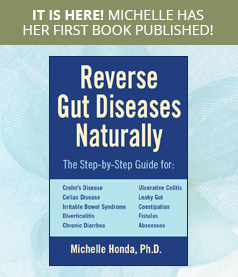

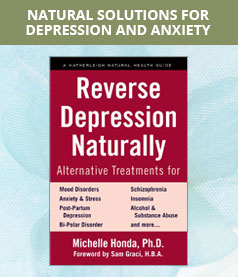
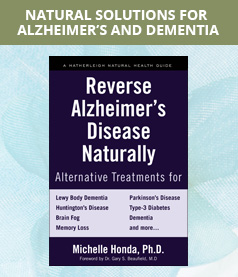
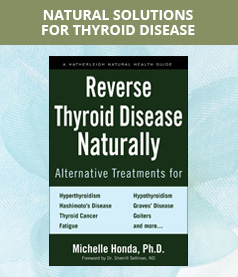

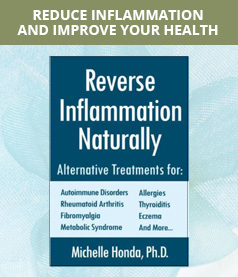
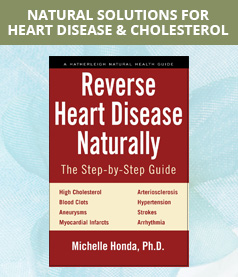
Follow Us!